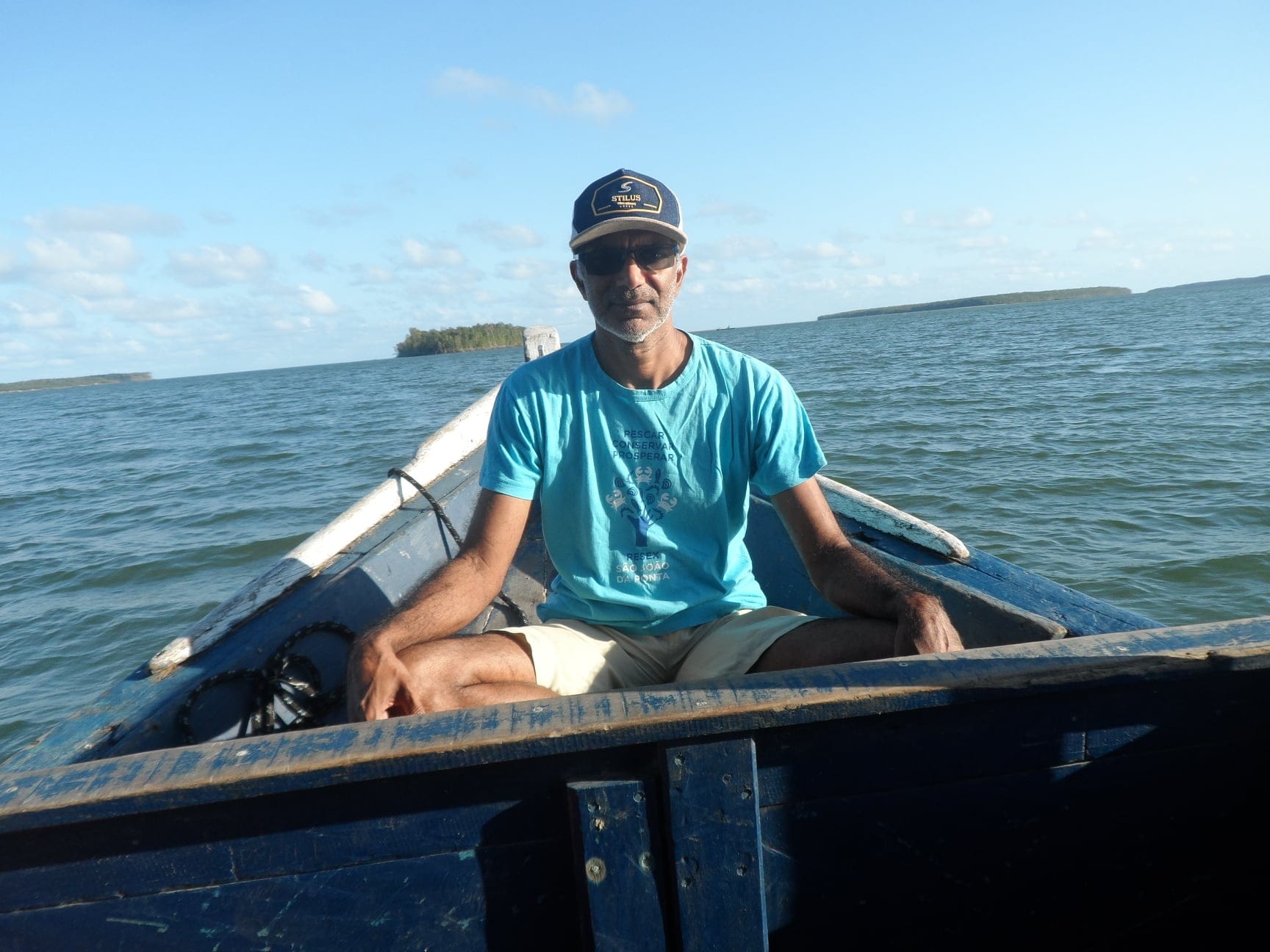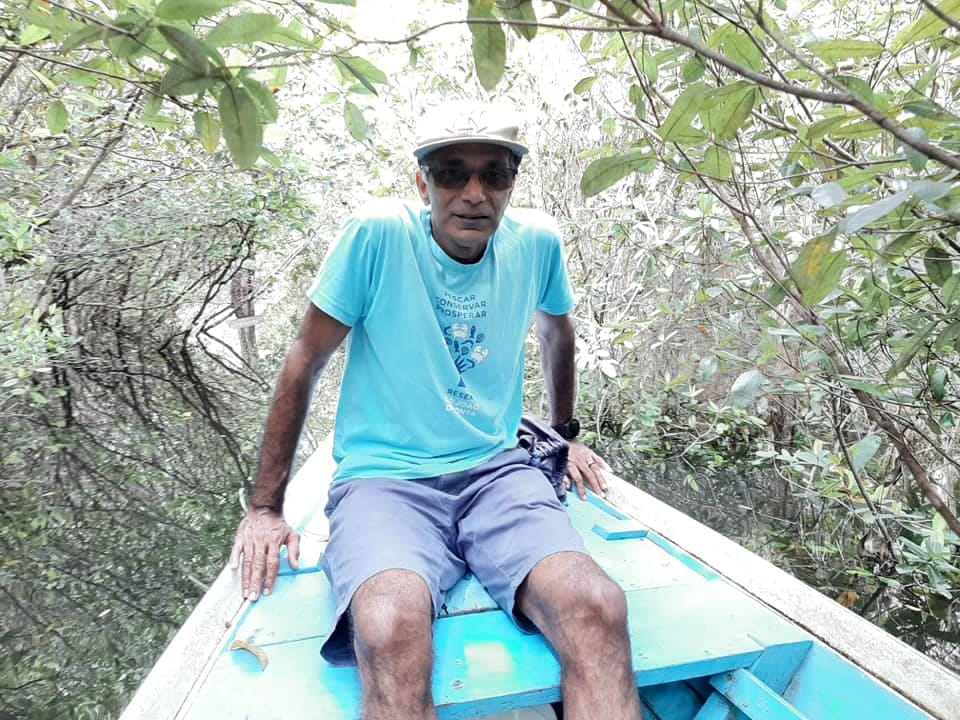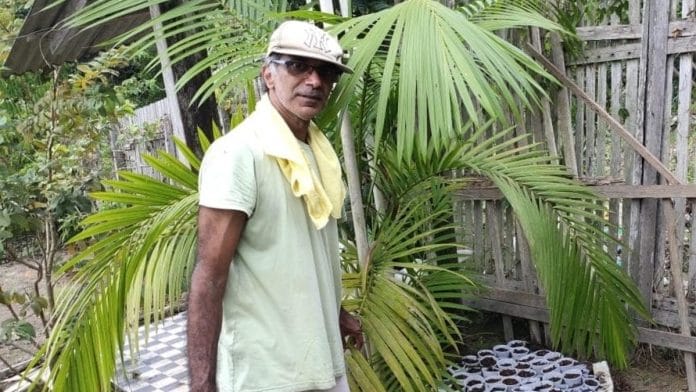New Delhi: Deep in the heart of Brazil’s Amazon, there is one man who has been relentlessly working for the past 26 years to protect the world’s largest tropical rainforest, which are known as the ‘lungs of Planet Earth’. But in what may seem like a fictional biopic turn, he traces his origins to the coastal state of Kerala.
Taking Brazilian citizenship, becoming the “only Indian-origin lawyer there”, standing up to local mafia, and even living on a boat in the Amazon river for years — there is nothing Kottayam-born Shaji Thomas hasn’t done since he moved to São Paulo in the late 1980s.
And he has done it with the zest of a committed fighter.
Over the last many years, Thomas says he has been working with the indigenous communities inhabiting riverine Amazon rainforests in defending their land rights, and saving them and their forests from timber and mining mafia.
His efforts have touched local communities, including native North Americans, fishermen, and African-origin communities such as Quilombola. He has organised leadership courses for them, and worked towards social justice.
“The tribals have their own way of life and they need enough forest areas to live peacefully and have their subsistence. Today most of the tribal lands are under attack from timber, mining and agricultural mafia,” he tells ThePrint in an e-mail interview from the city of Santarem in Pará state.
Having lived in the South American nation for three decades, the Kerala-born notes the risks of working in these forests.
“A colleague who worked with me and for social justice in Brazil was killed by the mafia and I know that it is a dangerous task,” he claims. “I hope to continue my work to contribute to a better world, even though one day it can cost my life.
“The Amazon is burning and being destroyed every moment. The destruction is caused by many factors, including land grabbing, illegal mining, dam projects, agricultural projects, cattle farming, timber business, etc,” he says.
But this story of a long, meaningful fight begins from a chance training programme Thomas found himself pursuing.
Also read: Surviving the next 50 years is an existential crisis – 3 things we must do now
From Kerala to Brazil
Shaji Thomas was born to an agricultural family from Ramapuram village in Kottayam in 1967. As he turned 23, an NGO named Society of Divine Word, which works for justice and peace in India, introduced him to an overseas training programme that aimed to provide one year of international socio-cultural experience in Brazil for an Indian student.
And so, after a one-year wait for a visa, he arrived in São Paulo in 1989 for the training programme offered by the São Paulo Institute of Higher Studies, in collaboration with the Propagation and Cultural Association.
From his first brush with Brazil, Thomas recalls language barriers, getting cheated, and mistaking caipirinha (a traditional drink made of sugar cane alcohol, lemon, and sugar) for lemon juice.
But Brazil and its indigenous communities soon became an inseparable part of his life. And Thomas decided he wanted to stay back.

The training programme was initially for a year, but the institution, Thomas says, offered him to pursue graduation in liberation theology — theology applied to the core concerns of marginalised communities — and continue to study multiculturalism.
Thomas says liberation theology “was the base for the social struggle in Brazil, being a Christian country with the church having influence in people’s lives”.
“It was the ideological support for the people to fight for justice and peace in Brazil,” he says.
While pursuing the course, Thomas got the opportunity to work in the “biggest slum area of Brazil along with other five students”. This inspired him to do social work further and he went on to work with several social movements, including the Landless Workers’ Movement (MST) in the city of São Paulo.
Also read: We will see more storms and floods — IPCC report shows water cycle intensifying
Amazon runs into his life
Thomas’ first tryst with the Amazon came in 1991 when he visited the rainforests — a “long-desired dream” — during his college vacation.
He reached the remote African-origin community, the Quilombola there. “These Quilombola people are those who escaped slavery and formed communities in the deep Amazon forest and other parts of Brazil,” Thomas explains.
“I stayed with these tribals for a month. This experience touched me very much and I decided to come back to these people after my graduation studies in São Paulo”, Thomas says.
Soon after graduation in 1995, his institution provided him with further opportunity to work in the Amazon and so Thomas returned. Since then, he has been working with many communities in the Amazonian forests.
Years on a houseboat
About half-a-decade after he began voluntary work involving social activities, leadership formation, and justice and peace for the marginalised communities, he moved to live on a houseboat in the Amazon river for better access to the far-flung people. And he stayed on it for over five years (2001-06).
“The communities here in Amazon are very distant and it takes days of travel to reach some of them. We also had no communication facilities and the adverse situation of deep forest and Amazon river was very challenging,” he says.
So, an association called ‘Verdiama Culture and Propagation’, which works for justice and peace in the Amazon region, donated a boat. “It was my house for almost six years,” he says.

He lived on the diesel boat and ate fish and tapioca powder. “There were no GPS and other other communication facilities, so I used to make my own maps and signals to reach the communities,” Thomas reminisces.
He managed to visit 63 communities in the riverine Amazon in a year at one point.
Also read: These are the ‘code red’ warnings in IPCC climate change report, & why it matters
Citizenship — and then only Indian-origin lawyer in Brazil
Working in the Amazon, however, was marred by face-offs with the landlords and timber mafia, who used to discredit him because of his Indian origin.
“So I decided to get Brazilian citizenship in 2005, which would help me to work like a Brazilian citizen,” Thomas says.
Pointing out the issue of land rights in the rich biodiverse rainforests, Thomas says he recognised the value of legal rights of the indigenous communities to protect the Amazon from the timber mafia. He decided to study law and became the “only Indian-origin advocate in Brazil”.
“The law is fundamental to work for justice and peace and to help the communities,” Thomas says.
He also pursued post-graduation in urban environmental development (2010), and social movement in Latin America (2013), and later a PhD in sustainable development (2014).
Working with Quilombolas and fight for their land rights
As an independent law practitioner, Thomas has been registered with the Brazilian Bar Association since 2015. He works with many social movements and civil rights bodies in environmental and agrarian law.
Recalling his first experience working with the Quilombolas, he says that despite the fact that these communities “have been living in their territory for long years, their rights — including the land rights — were not recognised by the government”, and that is their main struggle.
“Many times, their lands were grabbed by landlords and timber mafia. The first work was to organise them and get their constitutional right for the land. Even today, though there are many rights they have but those are not implemented and the tribals struggle for their rights including, right to education, health and land,” Thomas explains.
“The Brazilian Constitution of 1989 guarantees the right to land that is occupied by the tribals and Quilombolas. However, these lands have to be demarcated and recognised by the executive Act. Many times, these processes are not respected and even the lands which have already been given to tribals, are being used for other purposes,” he claims.
Thomas helps these underprivileged people with legal assistance. “Most of the funding comes from my friends and other organisations who support my work here,” he says.
Climate change, Agro-Extractivism, Pandemic and the Amazon
But there is another issue bedeviling the Amazon — climate change, which is accelerating the destruction of the rainforests as the vast stretch is burning at the rate of almost “20 sq. km per year”, he claims.
Thomas, who also works as a scientist and researcher in the Federal University of Pará, has been researching climate change effects on agriculture and small-scale fisheries in the Amazon for the last six years.
He outlines two characteristic Amazon weather cycles: Six months of heavy rainfall and six months of light rain. However, he says, the heavy rainfall now happens for a shorter period and there are unexpected drought seasons, which are a cause of concern for cultivation.
Thomas observes that such changes in Amazon’s weather affects agro-extractivism — extracting high-demand resources as much as possible.
He is working towards ensuring the inclusion of local communities in policy decisions about the adverse effects of climate change. “The participation of the local community is fundamental for any action. We need to think about ‘down-up’ policy planning where the local community is heard in policy making,” Thomas says.
Government apathy only exacerbates all these issues, he believes. “Above all the problems, the main issue is the lack of government interest to protect Amazon and political interest is above environmental interest,” he says.
The government of President Jair Bolsonaro is contributing to the destruction of Amazon with its policy, says Thomas.
In the last few months, the pandemic has worsened the situation for the people living in these forests.
“The Amazon variant of the coronavirus pushed the vulnerable communities to the margins with a poor healthcare system, while the timber and mining mafia took advantage of the situation — destroying the Amazon even more — in connivance with the federal government due to reduced social resistance,” he adds.
(Edited by Amit Upadhyaya)
Also read: Prepare for extreme weather events, reduce emissions — IPCC report author has warning for India






